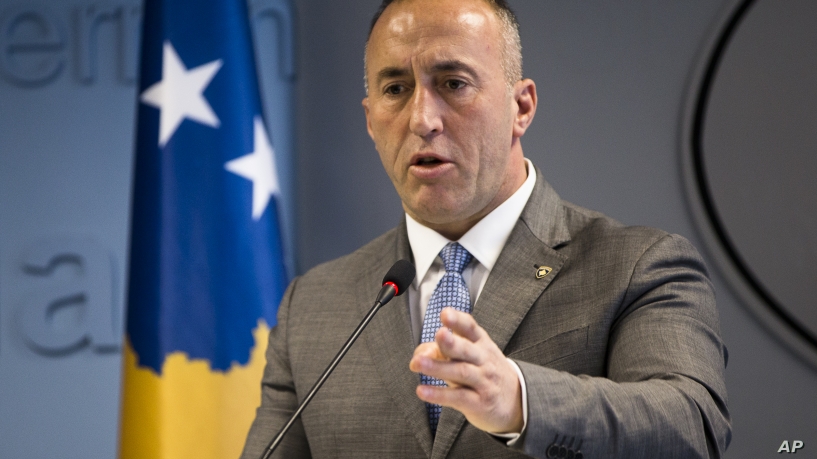Every Sunday, The Vostokian brings you the most important pieces of news from the Balkans and Eastern Europe!
Compiled by Eva Jovanova and Hristo Voynov
1. Kosovo Prime Minister, Ramush Haradinaj, decided to resign earlier last week. His decision came after he was invited for questioning by the Special Tribunal in the Hague. The questioning will have to prove if he committed war crimes or not. One of the last things he announced before his resignation was that the tariffs imposed last November on goods coming from Serbia and Bosnia will remain in place. Now Kosovo might face snap elections. Haradinaj was the Prime Minister since 2017. During the questioning that took place on July 24, Haradinaj refused to answer all questions related to war crimes between 1998 and 2000, a time when Haradinaj served as a commander in the Kosovo Liberation Army.
2. The debate between Czechia’s ruling coalition continues. The minority party, the Social Democrats, are complaining about the current Culture Minister who they consider ineffective, and have accused President Andrej Babis of the majority ANO party of not respecting their request to nominate their candidate. Babis has requested that President Milos Zeman fire the current minister, which he is obligated to do by law, but he has yet to do so. The Czechian senate voted in a complaint against Zeman for this and other actions, which is unlikely to pass the parliament. If the Social Democrats don’t get their way and act on their threats to leave the ruling coalition, the country could be forced into early elections that are likely to be a repeat result of the elections that led to the current unstable government.
3. Serbian President, Aleksandar Vucic, announced last week that the wages and pensions for the people working within the Serbian system in Kosovo will be increased. He announced this while he was giving a statement to a Most TV journalist about the level of durability for Kosovo Serbs amid Kosovo high-ranking politicians being questioned by the Hague Special Tribunal. He stressed that the lack of investments coming into Kosovo has deteriorated the living standards of the Serbs in Kosovo and Metohija, but that Serbia will do everything to help by significantly increasing these people’s salaries and pensions.
4. The Ukrainian elections brought in the expected result of a landslide victory for new President Volodymyr Zelenskiy’s Servant of the People party with 43.16% of the vote. In second place was the pro-Russian Opposition Platform – For Life party with 13.05%, and the Fatherland party of Former Prime Minister Yulia Tymoshenko received 8.18% of the vote. Former President Petro Poroshenko’s European Solidarity party won 8.10%, and the new Voice party won 5.8% with the vast majority of those votes coming from Lviv, all with a total 49.2 turnout. This gives the new president’s party a pure majority in Parliament, which will allow him to act out his policies with little in the way.
5. Romania enacted a new law last week that extends voting rights to its diaspora. According to an OECD report two weeks ago, the Romanian diaspora is the fifth largest in the world, with 3.6 million Romanians living outside of the country and less than 20 million living in it. But the people who are living inside Romania is expected to fall, as a quarter of the Romanians want to leave the country if given the opportunity. The new law would allow early voting and voting by correspondence, making it easier for the Romanian diaspora who complained that, after queuing for hours, still did not get a chance to vote in the European elections this May.
6. The politicking between the EU and it’s ‘illiberal bloc’ continue. The European Commission decided to take Hungary to the Court of Justice of the European Union over its “Stop Soros” laws, the third stage of infringement procedures against states acting out against the EC’s norms and values. These laws targeted many NGOs that Hungarian PM Viktor Orban claimed were supportive of refugees and migrants, while opponents claim focused on targeting liberal opposition to the president. Meanwhile, it continues to ramp up pressure on Poland over attempted judicial reforms. The reforms were supposed to ‘modernize’ the judiciary but were seen as a ploy to replace judges on the Supreme Court that are not supportive of the current ruling party. One approach that the EC is proposing is to tie EU funding to member states to whether they comply with the EC’s rulings and norms, which Poland and Hungary see as the EU forcing too much external control over domestic politics of its member states.


0 comments